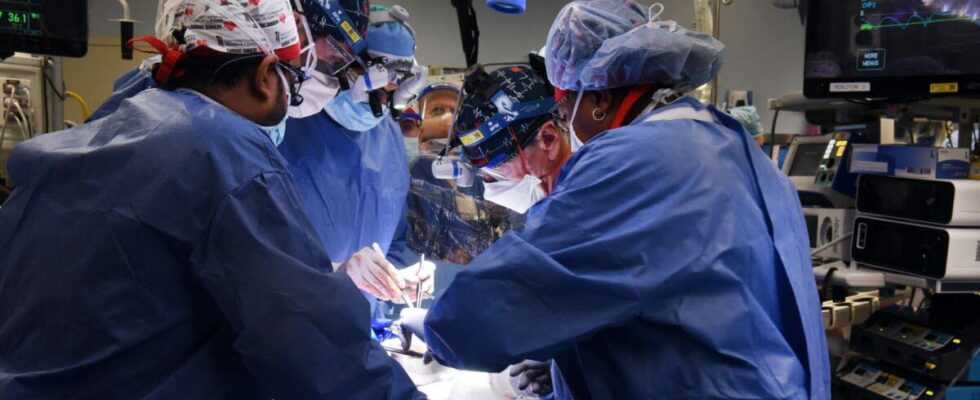It is a feat.
American surgeons have successfully transplanted a heart from a genetically modified pig into a human patient, a world first, the University of Maryland School of Medicine announced on Monday. The operation took place last Friday.
“It was my last option”
David Bennett, 57, who received the porcine heart, was declared ineligible for a human transplant. It is now closely monitored by doctors to make sure the new organ is functioning properly.
“It was either death or this transplant. I want to live. I know it’s pretty hit and miss, but it was my last option, ”the Maryland resident said a day before his operation, according to the medical school. “I can’t wait to be able to get out of bed once I’m well,” said David Bennett, who has spent the last few months bedridden and hooked up to a machine that kept him alive.
“This is a major surgical breakthrough and one that brings us one step closer to a solution to the organ shortage,” commented Bartley Griffith, who performed the transplant.
Modified to no longer produce one type of sugar
The pig the heart comes from has been genetically modified to no longer produce a type of sugar that is normally present in all pig cells and that causes immediate rejection of the organ.
This genetic modification was made by the Revivicor company, which also provided a pig kidney that surgeons had successfully connected to the blood vessels of a brain-dead patient in New York City in October.
110,000
Nearly 110,000 Americans are currently on the organ transplant waiting list and more than 6,000 people who need transplants die each year in the country.
Xenografts date back to the 17th century
Xenografts – from animal to human – are not new. Doctors have attempted cross-species transplants since at least the 17th century, with the earliest experiments focusing on primates.
In 1984, a baboon’s heart was transplanted into a baby, but the little one, nicknamed “Baby Fae”, only survived 20 days.
